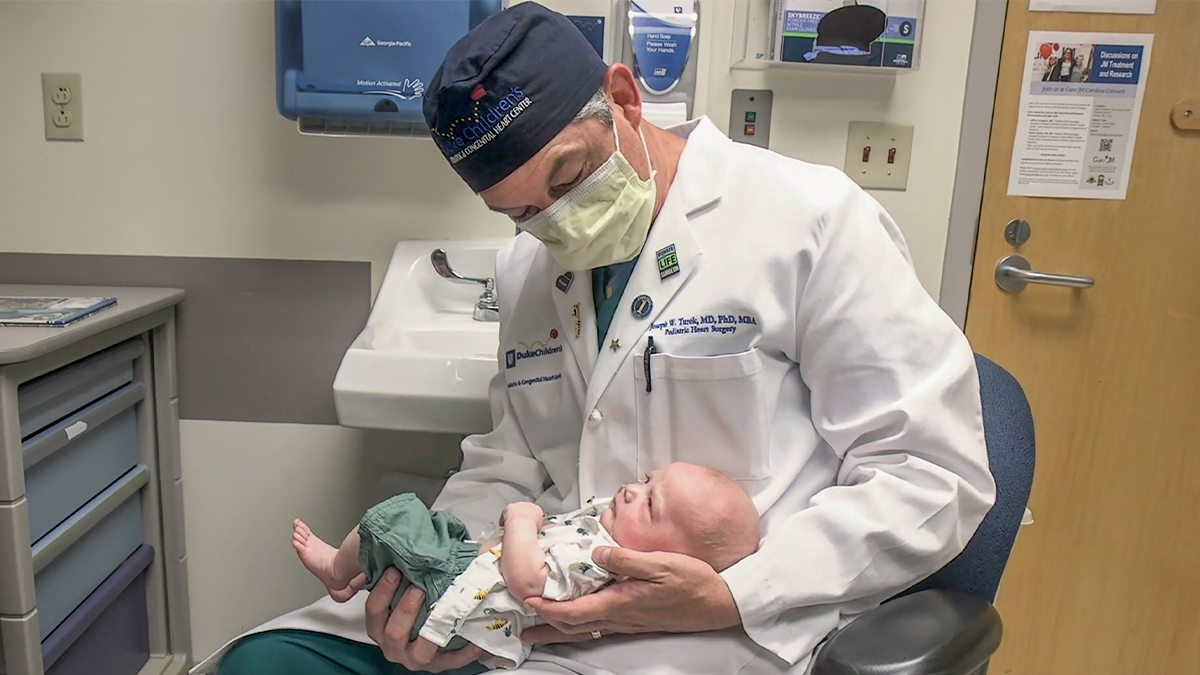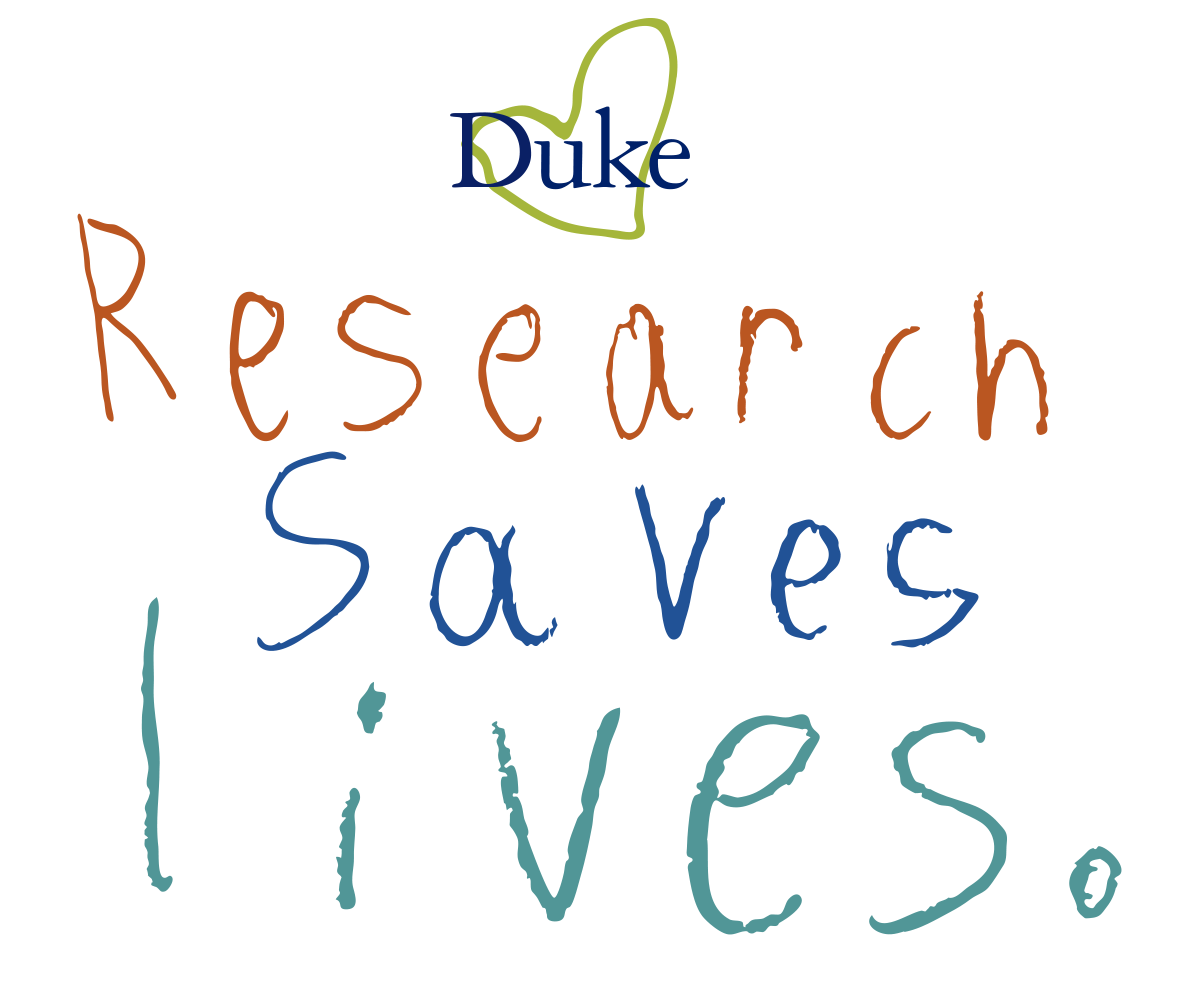
Sabrina Lewandowski woke up one morning 23 years ago with a headache that should have killed her.
The cause was a stage four glioblastoma multiforme - a particularly insidious brain tumor that most people don't survive. Many hospitals would have advised her to go home and get her affairs in order. But instead of a death sentence, a care team at Duke presented her with options. And hope.
Did you know your taxpayer dollars fund research that improves cancer survival rates, detects and prevents childhood diseases and relieves pain? Research isn't just science; it's about people - your family, friends and community.
What does research look like?

Life-Saving Cancer

Clinical Trials
A clinical trial is a research study where doctors test new treatments to see if they are safe and work well. At Duke, clinical trials for cancer treatments are not possible without the infrastructure provided by Duke's Cancer Institute, a part of the network of federally funded cancer centers created in 1971.
Turning Failure into Success
When a drug doesn't work for its intended purpose, researchers often investigate its effects more thoroughly. Sometimes failure provides a critical insight that eventually leads to a groundbreaking discovery.
Alternatives to Surgery
Surgery can be painful and require long recovery times, and in some cases may have life-changing impacts. Finding alternatives can take years of research and dedication but can result in a higher quality of life.


Groundbreaking Surgical

Robotic Surgery
Directed by humans, robotic surgery allows for a precision that human hands can't match. The smaller incisions result in less pain, a lower risk of infection and faster recovery time.
Kara Pace received a new liver, and a new life, undergoing the first robotic liver transplant surgery at Duke Health.


Pediatric Heart Surgery
Infants can't tolerate or recover from surgery the way older children or adults can. A baby's heart is the size of a strawberry, and total heart transplants in infants often last for just 21 years. Procedures developed by Duke faculty surgeons not only have saved the lives of infants, they have provided options that should last a lifetime.

Pediatric heart surgeon Dr. Joseph Turek performed the world's first partial heart transplant on a 17-day-old baby.

Biomedical Engineering


New Ways to Diagnose Disease
Diagnosis of a disease or condition is often based on symptoms, medical history and tests. Researchers are continuously inventing advanced diagnostic methods, improving accuracy and early detection, which are essential for effective treatment and better patient outcomes.
Reducing Pain
Many painkillers can interfere with the healing process but a Duke invention, an injectable gel-like substance, simultaneously promotes healing and alleviates pain.

Clean Environment

Reducing Pollution
Research helps us figure out where pollutants come from, so we can tackle them more effectively. This means we can create and promote cleaner technologies to make our environment healthier.

Understanding Health Risks
By studying samples collected from Black Mountain, researchers hope to better understand the health risks mold and other fungi pose after flooding. Their findings could also pave the way for new drug targets and easier ways to treat fungal infections.

Why Research Matters:
Parkinson's Disease
Basic Science
Basic science is what most research is. Students, faculty, scientists and others explore how things in nature behave through careful observation and experimentation. Communities everywhere benefit when basic science uncovers new knowledge, leads to new technological advancements, and solves everyday problems with facts and evidence.







